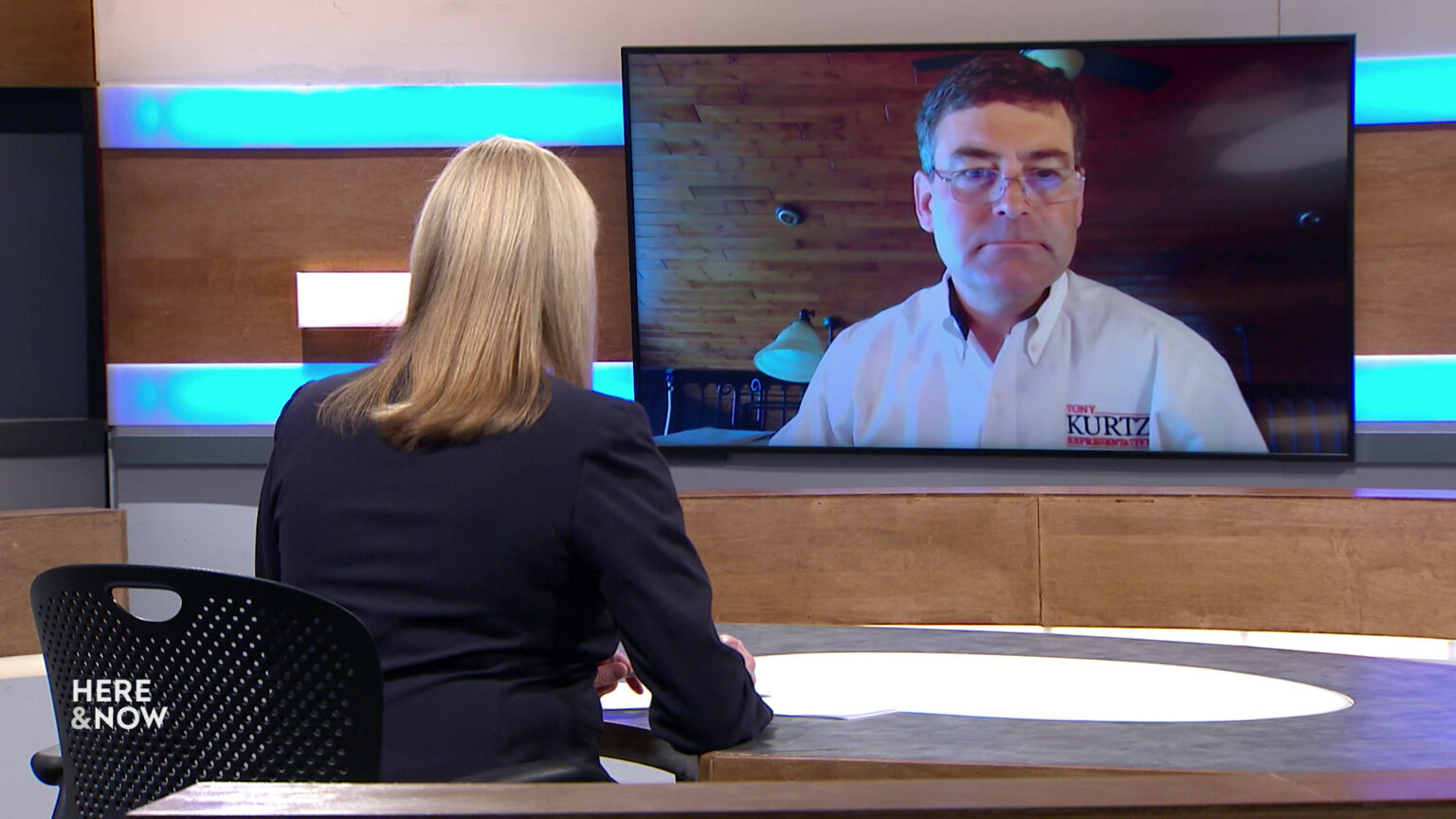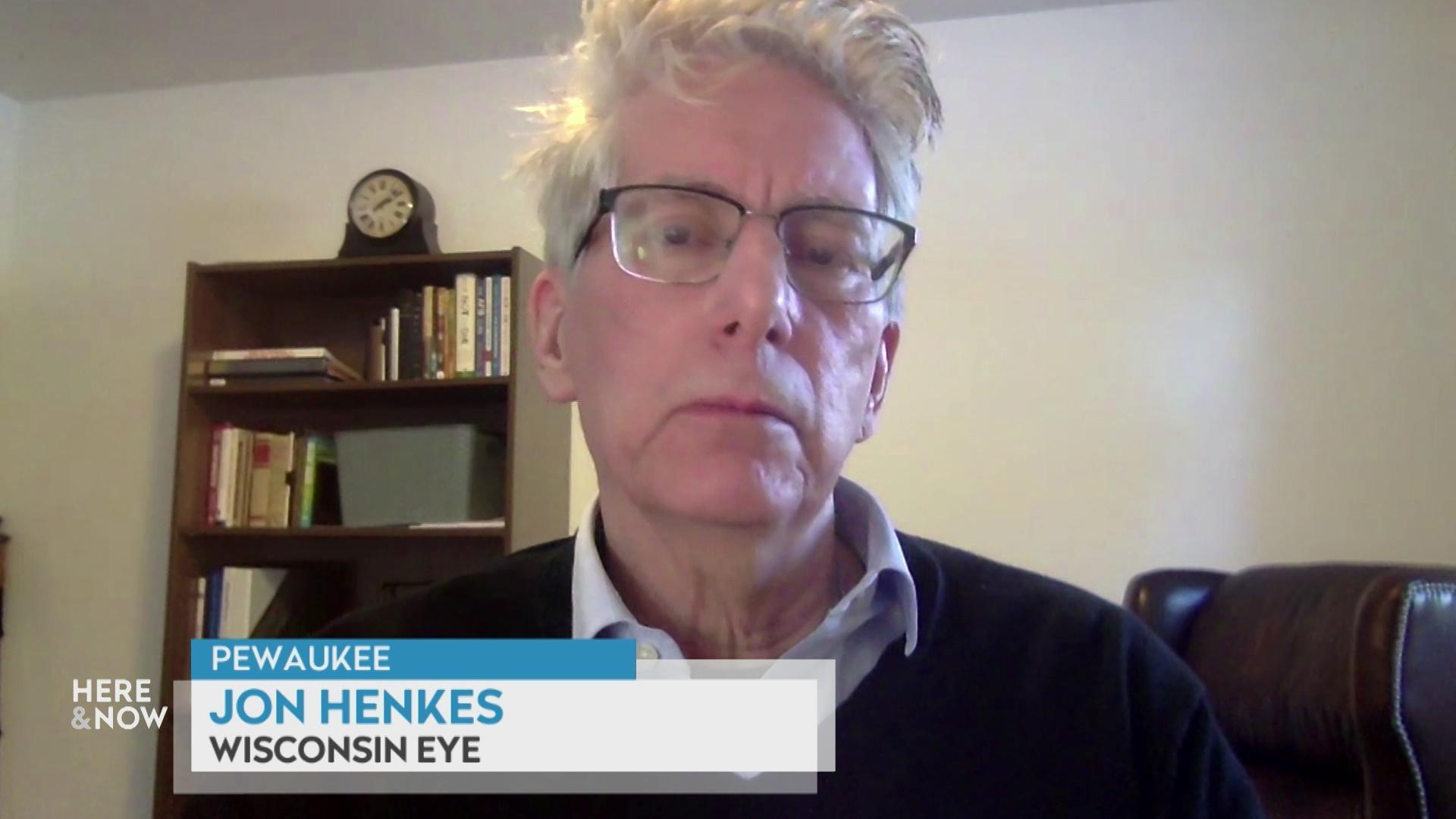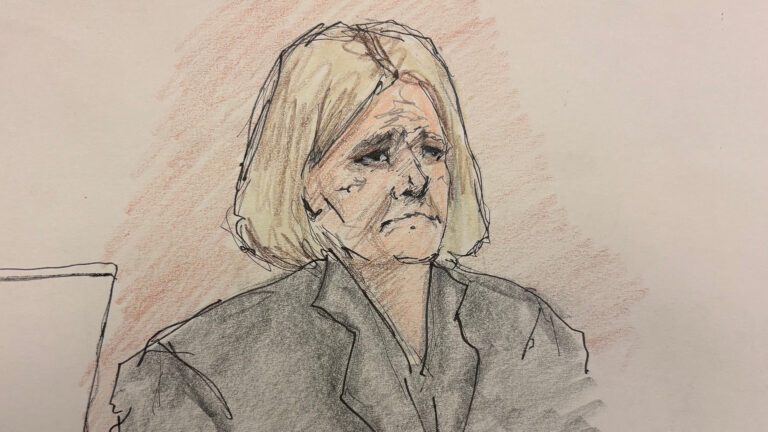'Here & Now' Highlights: Rep. Tony Kurtz, Rep. Jerry O'Connor, Rep. Katrina Shankland
Here's what guests on the April 28, 2023 episode said about a Republican plan to boost shared state revenue with local governments around Wisconsin and the legislative debate over unemployment assistance.
By Frederica Freyberg | Here & Now
May 1, 2023

Frederica Freyberg and Rep. Tony Kurtz (Credit: PBS Wisconsin)
The Republican majority in the Wisconsin Legislature has released a plan that would share 20% of the state’s sales tax revenues with local governments and also allow Milwaukee to raise its sales tax by 2% if approved by voters — Rep. Tony Kurtz, R-Wonewoc, a member of the Joint Committee on Finance, describes the proposal. The Republican-controlled Assembly passed a slate of bills to change requirements for unemployment insurance — Rep. Jerry O’Connor, R-Fond du Lac, championed the bills as tightening oversight while Rep. Katrina Shankland, D-Stevens Point, decried them as unnecessary.
- It’s been nearly 20 years since towns, villages, cities and counties in Wisconsin have seen increases in the amount of money the state distributes to local governments in what’s known as shared revenue. Under a new plan put forth by Republican legislators, local governments would see a roughly $500 million increase statewide, with every municipality seeing an increase of at least 10%. Kurtz was tasked by Assembly Speaker Robin Vos to develop the plan after years of local services like police and fire being strapped for cash.
- Kurtz: “In those communities, what do they need? Obviously, cities, villages — they obviously have more law enforcement, EMS, those type of providers. In our counties, it’s highway departments, the sheriff’s departments. But in townships, it’s a lot more EMS-related. Also, we hear that from all townships, especially towns — share opinions about the need to invest in roads. So we’ve kind of tailored this new money in the new $227 million that we’re going to put into towns, villages and cities and counties. We would like those areas targeted — new law enforcement, our fire departments, our EMS providers, our dispatch, also public works and transportation. And I think, trust me, what I hear from my constituents and my local officials — they can definitely use that money in those areas. And one of the feedbacks I got from somebody today — to be honest with you — they said ‘I can all use this in my sheriff’s department.’ Well, that’s true. But now you can use this money to fund your sheriff’s department, which should in turn maybe free up money elsewhere that you can use throughout the county.”
Rep. Jerry O’Connor
(R) Fond du Lac
- Republicans in the Legislature say it’s the will of the people to make sure people getting government assistance are reliably looking for work. That’s because more than three-quarters of voters said ‘yes’ to a referendum question on the April 4 ballot that asked: “Shall able-bodied, childless adults be required to look for work in order to receive taxpayer-funded welfare benefits?” About three weeks later, the Assembly passed several bills aimed at tightening requirements and oversight of the state’s unemployment insurance program. The Department of Workforce Development currently conducts random, weekly audits of claimants, who are required to document four valid job searches per week, one of which could include a job interview. O’Connor, who co-sponsored multiple bills on these matters, discussed their intent.
- O’Connor: “Well, it’s not addressing the issue. Part of that one goes back to ghosting, and ghosting is a matter where someone applies for a job, sends in an application, notifies the state that I took care of that. But when you go back to the employer, the employer is saying, ‘Wait a minute!’ There was an example, I believe it’s Ariens corporation there in east- central Wisconsin. They had in excess of 400 people that sent in an application for employment. But when they responded back to set up an interview or conduct one over the phone or in person, they could not even get a single response from those people — that, it’s in a one year period. Or they had appointments set up, and I believe there’s 125 appointments. People just simply didn’t show up. Now, if you’re the employer, this is the high-cost exercise.”
- O’Connor is referencing a letter from Ariens Co. submitted during a February 2022 committee hearing in the state Legislature.
Rep. Katrina Shankland
(D) Stevens Point
- During debate over the bills changing the state’s unemployment system, Assembly Democrats made a distinction between welfare benefits and unemployment benefits. They said the latter is an insurance program that people earn because they have worked, and is designed to ensure that if you lose your job through no fault of your own, there is a safety net of financial help to allow work searches. Shankland rejected the premise behind these bills.
- Shankland: “Ghosting is a real situation and there’s already a reporting form on the Department of Workforce Development website for employers to report. But what my colleagues across the aisle intended to do with this legislation is one missed interview, one car breaking down, one losing your childcare slot for the day or week, and you would lose unemployment for that week as well. We have one of the lowest rates in the nation [for unemployment insurance]. It’s up to $370 [per week] compared to states around us. That is not meant to supplant or replace an income. It is an income supplement designed to help you put food on the table and gas in the tank, but really not much more than that, to be frank. And so I think their argument not only is incorrect, but it also fails to understand what unemployment insurance is used for.”
Watch new episodes of Here & Now at 7:30 p.m. on Fridays.
 Passport
Passport











Follow Us